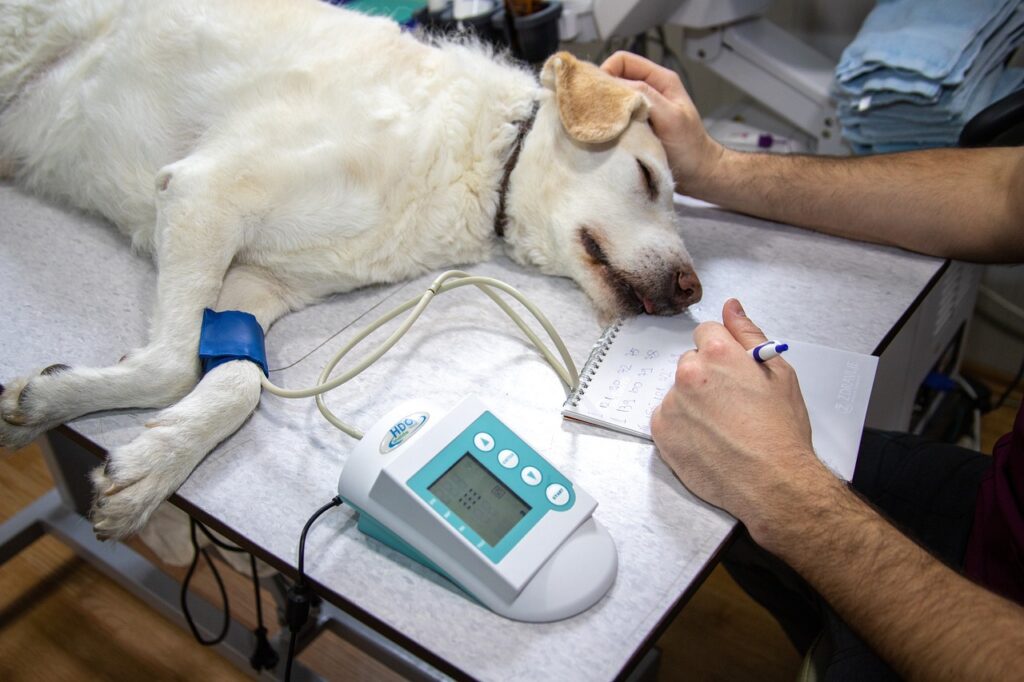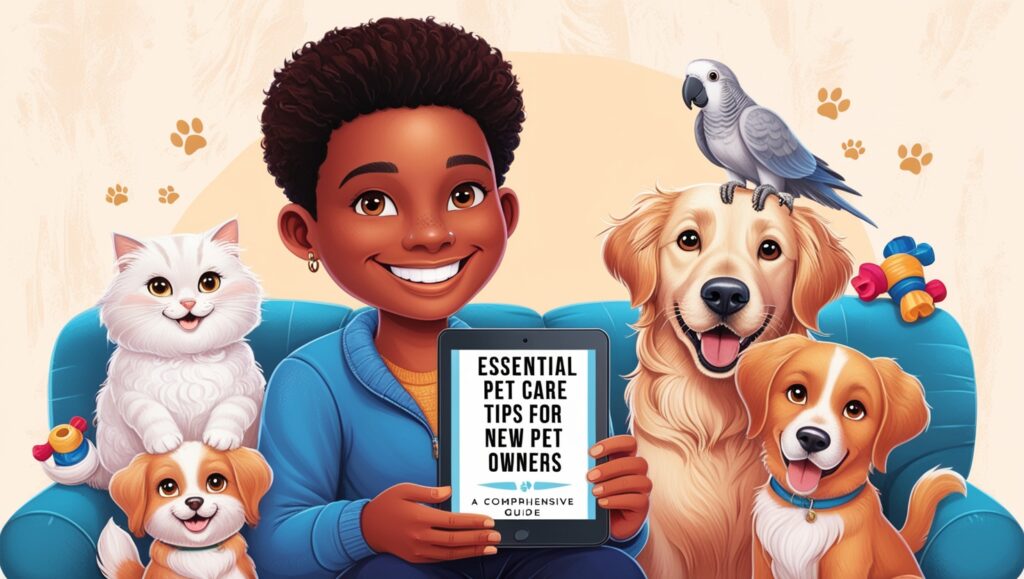Becoming a cat owner is an exciting adventure, but it also comes with big responsibilities. Whether you’re a first-time pet parent or looking to up your cat-care game, this guide will help you become the best cat owner you can be. Let’s dive into the world of feline care and learn how to keep your furry friend happy, healthy, and purring with contentment!
1. What Your Cat Needs
Every cat is unique, but all cats have some basic needs. To be a good cat owner, start by gathering these essentials:
-
- A sturdy food bowl and a separate water bowl
-
- High-quality cat food (more on this later!)
-
- Interactive toys like feather wands or puzzle feeders
Creating a cat-friendly home is crucial. Make sure your cat has:
-
- Safe spaces to climb and observe (like cat trees or window perches)
-
- Quiet areas for napping
-
- Access to fresh water in multiple locations
Understanding your cat’s behavior is key to being a good owner. Cats communicate through body language and vocalizations. Learn to read your cat’s signals:
-
- A raised tail usually means a happy cat
-
- Flattened ears could indicate fear or aggression
-
- Purring often shows contentment, but can also signal stress
-
- Excessive meowing might mean your cat needs attention or has a problem
By providing these basics and learning to understand your cat, you’re already on your way to being a great cat owner!
2. Feeding Your Cat Right
Proper nutrition is crucial for your cat’s health. Here’s how to feed your cat right:
Picking the Best Cat Food
Choose a high-quality cat food that meets your cat’s nutritional needs. Look for foods that:
-
- List meat as the first ingredient
-
- Are appropriate for your cat’s life stage (kitten, adult, senior)
-
- Don’t contain artificial preservatives or fillers
Wet Food vs. Dry Food: What’s Better?
Both wet and dry foods have pros and cons:
-
- Wet food: Higher in moisture, good for cats who don’t drink much water
-
- Dry food: Convenient, helps keep teeth clean, can be left out longer
Many vets recommend a mix of both for balanced nutrition.
How Much and When to Feed Your Cat
-
- Follow the feeding guidelines on the food package, adjusting for your cat’s activity level
-
- Most adult cats do well with two meals a day
-
- Avoid free-feeding (leaving food out all day) as it can lead to obesity
Why Fresh Water is Super Important
Cats need access to clean, fresh water at all times. Some tips:
-
- Change water daily
-
- Use wide, shallow bowls (cats don’t like their whiskers touching the sides)
-
- Consider a cat water fountain – many cats prefer running water
Remember, proper nutrition is a key part of being a good cat owner!
3. Keeping Your Cat Healthy
Regular healthcare is essential for a happy cat. Here’s what you need to know:
Regular Vet Check-ups
-
- Take your cat for a check-up at least once a year
-
- Senior cats (over 7 years) may need more frequent visits
Shots to Keep Your Cat Safe
Vaccinations protect your cat from serious diseases. Common vaccines include:
-
- Rabies
-
- Feline Distemper (FVRCP)
-
- Feline Leukemia (for outdoor cats)
Your vet will recommend a vaccination schedule based on your cat’s lifestyle.
Taking Care of Your Cat’s Teeth
Dental health is often overlooked but very important. Try to:
-
- Brush your cat’s teeth regularly (use cat-specific toothpaste)
-
- Provide dental treats or toys designed to clean teeth
-
- Watch for signs of dental problems like bad breath or difficulty eating
How to Brush and Clean Your Cat
Most cats groom themselves, but sometimes they need help:
-
- Brush your cat regularly to reduce hairballs and shedding
-
- Trim nails as needed (about every 2-3 weeks)
-
- Only bathe your cat if necessary (like if they get into something sticky)
By staying on top of your cat’s health needs, you’re showing that you’re a responsible and caring cat owner.
4. Playtime and Fun
Cats need mental and physical stimulation to stay happy and healthy. Here’s how to keep your cat entertained:
Fun Games to Play with Your Cat
-
- Roll balls for your cat to chase
Cool Cat Trees and Scratching Posts
Cats love to climb and scratch. Provide:
-
- A tall cat tree for climbing and observing
-
- Multiple scratching posts of different materials (sisal, cardboard, carpet)
Toys That Make Your Cat Think
Puzzle feeders and interactive toys can keep your cat’s mind sharp:
-
- Treat balls that dispense food as they’re batted around
-
- Puzzle boxes where cats have to figure out how to get treats
Indoor Cats vs. Outdoor Cats: What to Know
Deciding whether to let your cat outdoors is a personal choice. Consider:
-
- Indoor cats are generally safer from accidents and diseases
-
- Outdoor cats get more exercise and stimulation
-
- If you do let your cat out, ensure they’re microchipped and wear a collar with ID
Remember, a bored cat can become a destructive cat. Regular playtime is an important part of being a good cat owner!
5. Litter Box Basics
A clean, well-maintained litter box is crucial for your cat’s health and happiness. Here’s what you need to know:
Choosing the Right Litter and Box
-
- Get a box large enough for your cat to turn around in comfortably
-
- Consider a covered box for privacy, but some cats prefer open boxes
-
- Choose a litter your cat likes – most prefer clumping, unscented litter
Where to Put the Litter Box
-
- Place the box in a quiet, easily accessible area
-
- Keep it away from food and water bowls
-
- If you have multiple cats, provide multiple boxes in different locations
How to Keep the Litter Box Clean
-
- Scoop waste daily
-
- Completely change the litter and wash the box every 2-4 weeks
-
- Always wash your hands after cleaning the litter box
Fixing Common Litter Box Problems
If your cat stops using the litter box, it could be due to:
-
- Medical issues (always check with your vet first)
-
- Dirty litter box
-
- Stressful location
-
- Dislike of litter type
Address these issues promptly to prevent ongoing problems.
6. Becoming Best Friends with Your Cat
Building a strong bond with your cat is rewarding for both of you. Here’s how:
How Cats Make Friends
-
- Let your cat come to you – don’t force interactions
-
- Offer treats and gentle pets to build trust
-
- Respect your cat’s boundaries
Rewarding Good Behavior
Use positive reinforcement:
-
- Offer treats or praise for desired behaviors
-
- Never punish your cat – it doesn’t understand and may become fearful
Making Your Cat Feel Safe and Happy
-
- Provide hiding spots and high perches
-
- Keep a consistent routine for feeding and play
-
- Minimize loud noises and sudden changes
Showing Love to Your Cat
-
- Spend quality time together daily
-
- Learn your cat’s preferred petting spots
-
- Talk to your cat in a soft, soothing voice
Remember, every cat is unique. Being a good cat owner means understanding and respecting your cat’s individual personality and needs.
7. Fixing Cat Behavior Problems
Even well-cared-for cats can develop behavior issues. Here’s how to address common problems:
Stopping Your Cat from Scratching Furniture
-
- Provide plenty of scratching posts
-
- Use deterrent sprays on furniture
-
- Consider soft nail caps for your cat’s claws
What to Do If Your Cat Meows Too Much
-
- Rule out medical issues with a vet check
-
- Identify and address the cause (hunger, loneliness, etc.)
-
- Don’t reward excessive meowing with attention
Helping Your Cat Get Along with Others
-
- Introduce new pets slowly and carefully
-
- Provide separate resources (food, litter boxes) for each pet
-
- Give each pet individual attention
When Your Cat Won’t Use the Litter Box
-
- Clean the box more frequently
-
- Try different types of litter
-
- Consult your vet to rule out medical issues
Patience and consistency are key when addressing behavior problems. Remember, your cat isn’t trying to be “bad” – there’s usually a reason for the behavior.
8. Keeping Your Cat Safe
Safety should be a top priority for any cat owner. Here’s how to protect your feline friend:
Making Your Home Safe for Cats
-
- Keep toxic plants, foods, and chemicals out of reach
-
- Secure windows and balconies to prevent falls
-
- Hide or cover electrical cords
Why Your Cat Needs a Microchip
Microchipping is a safe, permanent way to identify your cat if they get lost:
-
- It’s a quick, simple procedure done by your vet
-
- Keep your contact information up to date in the microchip database
First Aid Kit for Your Cat
Keep a pet first aid kit handy. Include:
-
- Gauze and non-stick bandages
-
- Tweezers for removing splinters or ticks
-
- A digital thermometer
-
- Your vet’s contact information
What to Do in an Emergency
-
- Stay calm
-
- Contact your vet or an emergency animal hospital
-
- Keep your cat warm and comfortable during transport
Being prepared for emergencies is an important part of being a responsible cat owner.
9. Common Questions About Cat Care
Here are answers to some frequently asked questions:
How often should my cat see the vet?
Adult cats should have a check-up at least once a year. Kittens and senior cats may need more frequent visits.
How do I know if my cat is sick?
Signs of illness can include changes in appetite, behavior, litter box habits, or energy levels. When in doubt, consult your vet.
How can I help my cat make new friends?
Introduce new people or pets slowly and in a controlled environment. Let your cat set the pace for new relationships.
Is it okay for my cat to sleep in my bed?
This is a personal choice. Many cats enjoy sleeping with their owners, but if it disrupts your sleep, it’s okay to keep your bedroom cat-free.
How do I cut my cat’s nails safely?
Use cat-specific nail clippers and cut only the white tip of the nail, avoiding the pink quick. If you’re unsure, ask your vet or a groomer to demonstrate.
Wrap-up
Being a good cat owner is about providing love, care, and understanding. Remember these key points:
-
- Provide proper nutrition and fresh water
-
- Keep up with veterinary care
-
- Offer plenty of play and mental stimulation
-
- Maintain a clean litter box
-
- Create a safe, cat-friendly home environment
-
- Address behavior issues with patience and positivity
By following these tips, you’ll be well on your way to being an amazing cat owner. Your feline friend will reward you with years of companionship, love, and those coveted purrs of contentment.
Want to learn more? Join a local or online group for cat owners. Sharing experiences and advice with other cat lovers can be a great way to enhance your cat care skills and make new friends who share your passion for felines.
Remember, every cat is unique and being a good owner means adapting to your individual cat’s needs and personality. With love, patience, and the right care, you and your cat can enjoy a wonderful life together!



